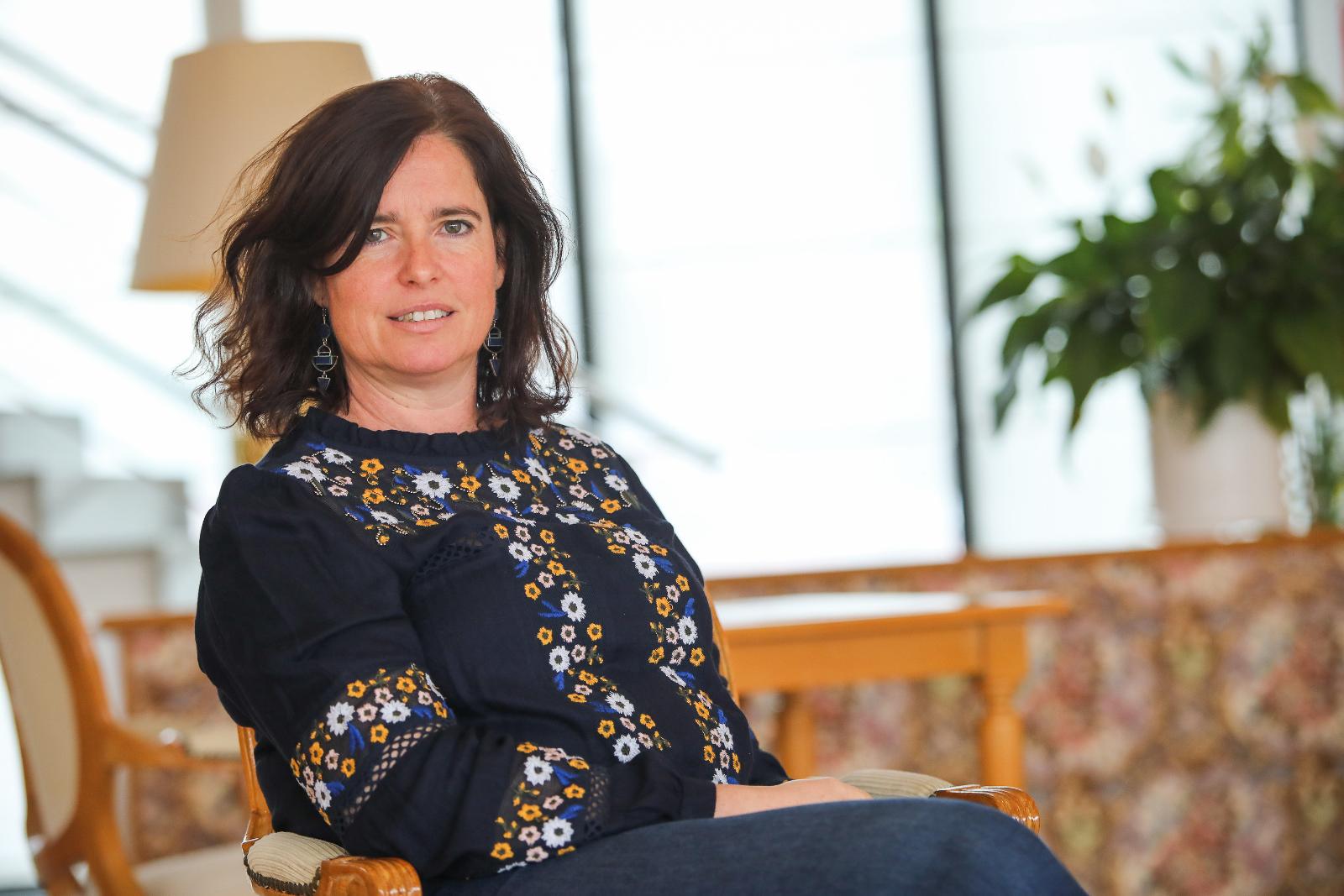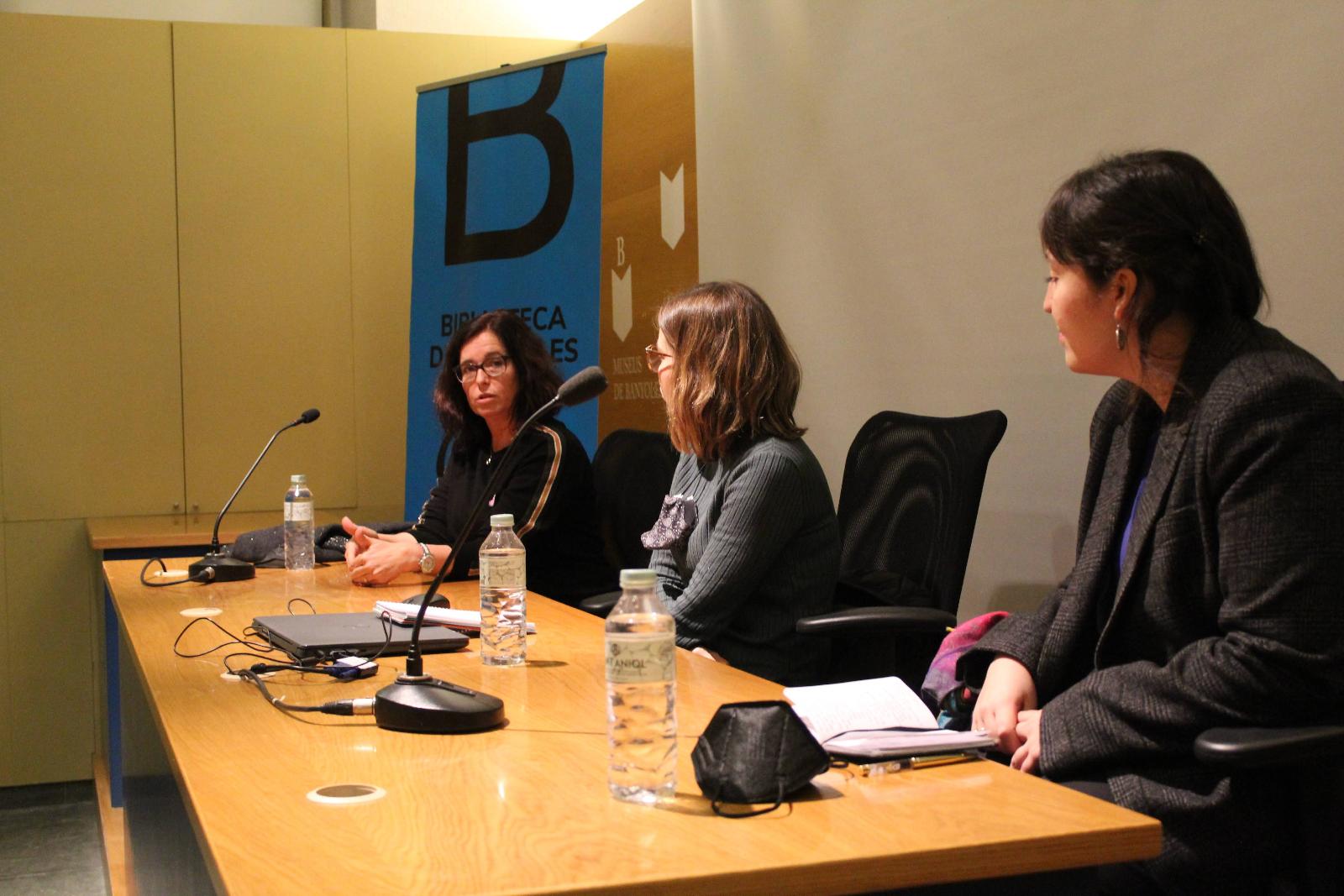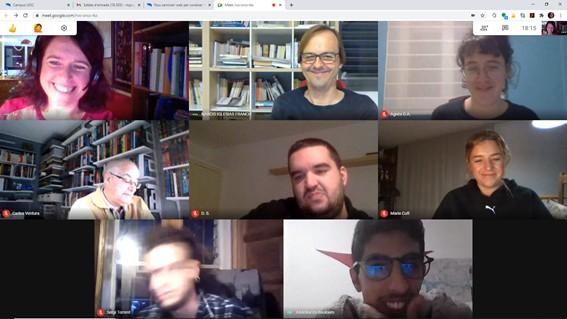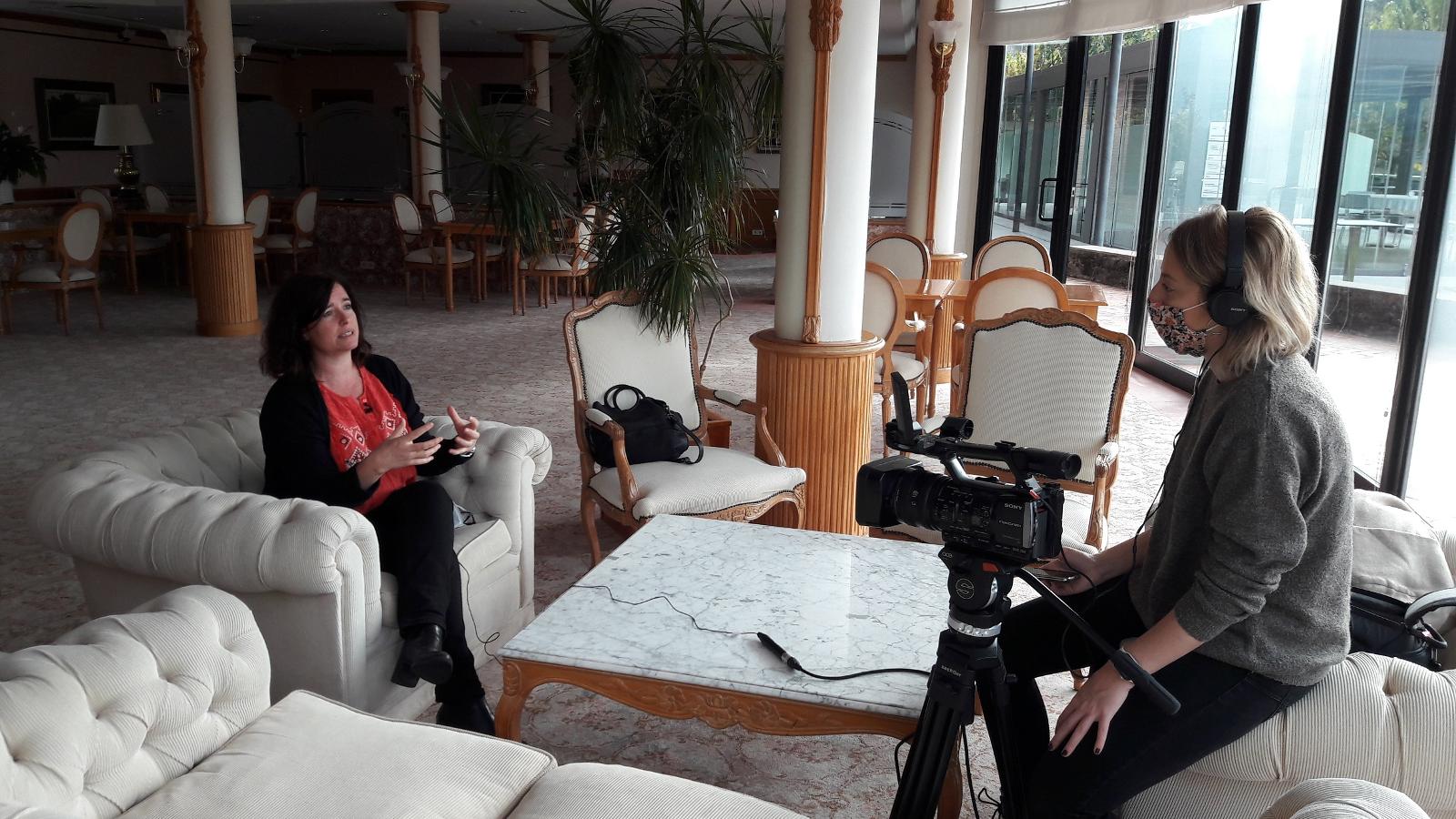Collective residencies / LINGUISTIC RIGHTS / Olot
MAITE PUIGDEVALL SERRALVO
From Monday, 2 November 2020 to Saturday, 7 November 2020

Bio
Maite Puigdevall is Senior Lecturer of Catalan Philology, in the Department of Arts and Humanities at the Open University of Catalonia since 2008. She graduated in Philosophy and Letters (Catalan Philology, UdG, 1995); Master in Welsh Ethnological Studies (Cardiff University, Wales, 1997) and Doctor of Philosophy (Language Planning, Cardiff University, 2006).
She is a member of the research group Identi.cat on “Language culture and identity in the global era. Her areas of expertise are Critical Sociolinguistics and Language Policy and Planning in minority language contexts in Europe. Her current research focuses on advancing the understanding of the “new speaker” subject of minority languages in the Catalan context from an intersectionality point of view, this is focusing on different aspects of the subject: gender, race, social class, etc. She has recently published the co-authored book on this subject: Ramallo, Fernando, Estibaliz Amorrortu and Maite Puigdevall (2019). Neohablantes de lenguas minoritarias en España. Madrid: Iberoamericana Vervuert.
Project
My aim during the stay at Faber Residence is to finish an article for a monograph of the International Journal of Sociology Language with the provisional title " The New Speaker Subject: Conditions, Spaces, and Processes for Linguistic Mudes in Minority Language Contexts” edited by professors Fernando Ramallo (University of Vigo) and Jacqueline Urla (University of Massachusetts Amherst). It is expected to be published in December 2020. The provisional title of the article is: "The production of linguistic space and the process of muda in Catalonia". In the article I want to focus on the importance of the relationship between spaces and mudes. We have seen, through our ethnographic work, where we have taken part in the "Volunteering for the Language Program" of the Consortium for Linguistic Normalization and also in groups of "Diables" de Barcelona how spaces that favour the muda have to have a series of features. Also, we want to explore the concepts of “social production of space” (Henri Lefebvre) and “bridge spaces” (Teresa del Valle) to better understand the dynamics of the spaces of muda.
Autumn residency at Faber Llull
Dipika, Abhimanyu, Yael, Ammar, Sonia, Jan, Kola, Maurizio, el Kheyer, Mariona, Macarena. My stay at the Faber Llull has the names of the residents of this thematic stay of Linguistic Rights. We should have been many more, but COVID-19 has altered all the plans! However, thanks to the efforts of Pepa, Gavina and Francesc, tireless souls of Faber, they have made possible the meetings by videoconference, where we have been able to talk about our projects and to connect, despite the distance.
In Olot we were only three women: Mariona de Lleida, Macarena from Perú and me. We were able to combine work and concentration with incredibly special conversations about our work and life projects, during meals or on a walk we did through the beautiful autumn landscape of Olot.
The residence at the Faber Llull has been for me a space of quietness and serenity that has allowed me to concentrate on the elaboration of an academic article about the “muda” spaces, or spaces of becoming a new speaker of Catalan. But it has also given me the opportunity to meet with scholars, artists, actors, musicians, and writers who provided complementary visions of linguistic rights and specially of those of speakers of minority languages and immigration. We have travelled from the sounds and speakers of different languages of Brazil, Perú, to Canada, India, Nigeria, or Malaysia, or closer, in Europe: Luxembourg and the northern Italian valleys where the sounds of Franco-Provençal and Occitan are heard. We have shared pictures and read poetry, we have talked about literature and films, because the issue of speaker rights can be addressed from different genres and optics. They all help us understand the importance that languages have for the individuals who speak them.
From my residency at Faber a keep a sense of privilege and luck for having come across with the rest of the residents this autumn. I just hope that next year we can meet again in Olot and pick up the thread of our conversations.



